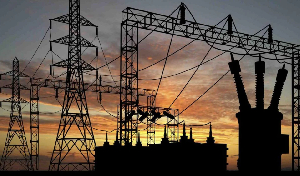Nearly two decades after reforms were introduced to liberalise Nigeria’s electricity market and boost generation capacity, the sector has failed to deliver meaningful progress, the Nigerian Society of Engineers has said.
This position was presented by former NSE president, Tasiu Gidari-Wudil, at the 29th edition of the NSE October Lecture Series held on Friday in Abuja.
Delivering the keynote lecture, Gidari-Wudil said the reforms, designed to attract private investment, expand access, and improve generation, have not achieved their intended goals. He noted that installed capacity remains around 13,000 megawatts, with actual generation still below 50 per cent of that figure.
He pointed out that the Electric Power Sector Reform Act of 2005, which kick-started the process, has yet to translate into tangible improvements for Nigerians.
“The sector has failed to deliver the promised transformation nearly two decades after liberalisation. If you ask whether there has been significant progress since 2005, the short answer is no. By now, we should have exceeded 30,000 megawatts, but due to political interference, regulatory lapses, and weak implementation, progress has been far below expectations,” he said.
According to him, the sector continues to suffer from chronic outages, infrastructure decay, and economic sabotage, all of which remain serious barriers to national development. He identified gas supply constraints, transmission bottlenecks, and commercial inefficiencies as key weaknesses cutting across the entire electricity value chain.
“The problems are everywhere, generation, transmission, and distribution. Distribution companies in particular must curb rampant commercial and collection losses, which remain the bane of electricity supply in Nigeria,” he added.
Gidari-Wudil acknowledged that private sector participation has introduced some accountability but said mismanagement and consumer indiscipline still undermine progress.
“Mismanagement thrives when utilities are under government control, but even private operators have failed to instil accountability. Consumers also play a role, everyone wants free electricity, but no one dares to leave a petrol station without paying. Until we confront this culture, reforms will not succeed,” he argued.
The lecture, themed ‘Evaluating Nigeria’s Power Sector Reforms: 2005–2023: A Quantitative Analysis of Technical Performance and Regulatory Impact’, critically assessed reforms that unbundled the National Electric Power Authority, established the Nigerian Electricity Regulatory Commission, and later paved the way for privatisation of generation and distribution firms.
Despite over $10 bn in post-privatisation investments, he noted, Nigerians still endure daily blackouts, frequent grid collapses, and unreliable service. Transmission losses average 8 to 12 per cent, while distribution efficiency varies widely across the 11 DisCos, with collection rates sometimes as low as 30 per cent.
He also cited policy inconsistencies and political interference as recurring obstacles but pointed to the 2023 Electricity Act as a potential turning point. The Act enables states to establish regulators, 11 states have already done so, and provides for an independent system operator equipped with IoT technology to track real-time energy units.
“We are moving towards a US-style model where every state has its public utilities commission, and even villages can form cooperatives for self-generation,” he said.
Gidari-Wudil advocated cost-reflective tariffs, transparent subsidies, and stronger stakeholder engagement, stressing that NERC must improve service monitoring beyond feeders to individual customer meters through smart technologies.
“The reforms were ambitious and well-designed, but poor execution and lack of political will slowed them down. The Electricity Act of 2023 offers fresh opportunities, but only faithful implementation will make a difference,” he added.
He emphasised that state regulators must learn from NERC’s 20 years of experience to avoid repeating past mistakes.
“The solution is near, and we have the technical know-how in this country. Unfortunately, we don’t have the ears of government. Until political leaders take technical advice seriously, the power sector will continue to struggle,” Gidari-Wudil warned.
In her opening remarks, NSE President, Margaret Aina Oguntala, said the lecture was a platform for the society to articulate its position on national issues, bringing together engineers, policymakers, and industry experts for candid discourse.
She pledged that the NSE would escalate recommendations from the lecture to government and continue engaging policymakers to ensure faithful implementation of reforms.
“We expect government to take ownership of these recommendations and to involve Nigerian engineers in delivering practical, homegrown solutions. If that happens, as our guest of honour said, there will indeed be light,” she said.
Also speaking, the Managing Director of Sahara Group, Kola Adeshina, represented by Head of Generation, Godwin Emanuel, urged stakeholders to take collective responsibility.
“The solution is right here. Engineers play a critical role in generation, transmission, and distribution reforms. We must ask ourselves what contributions we have made. The solution lies in our collective commitment,” he said.
The NSE’s October Lecture Series, instituted to showcase the insights of past presidents on critical economic issues, reinforced the point that reforms require long-term commitment beyond political cycles.
General News of Sunday, 5 October 2025
Source: www.punchng.com













